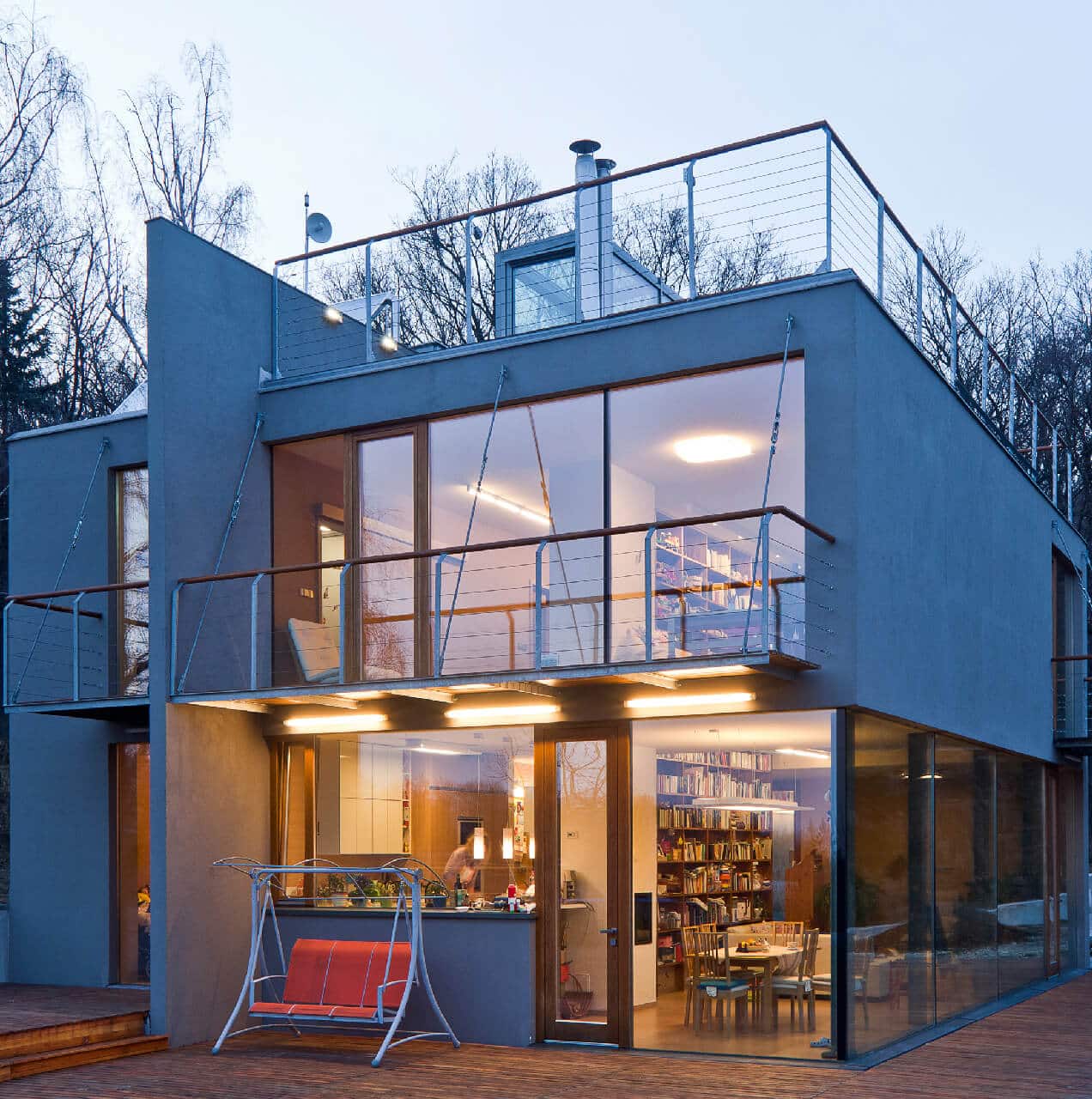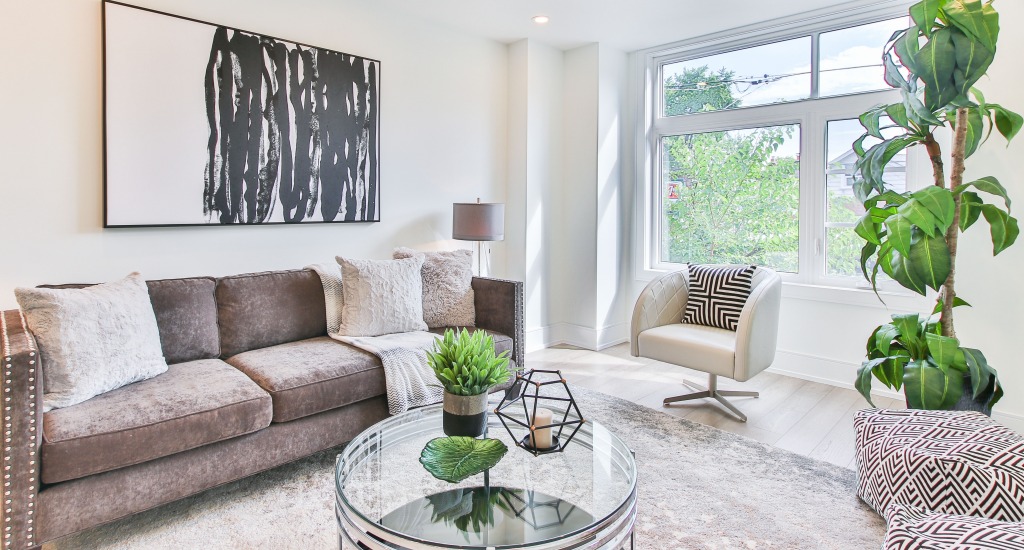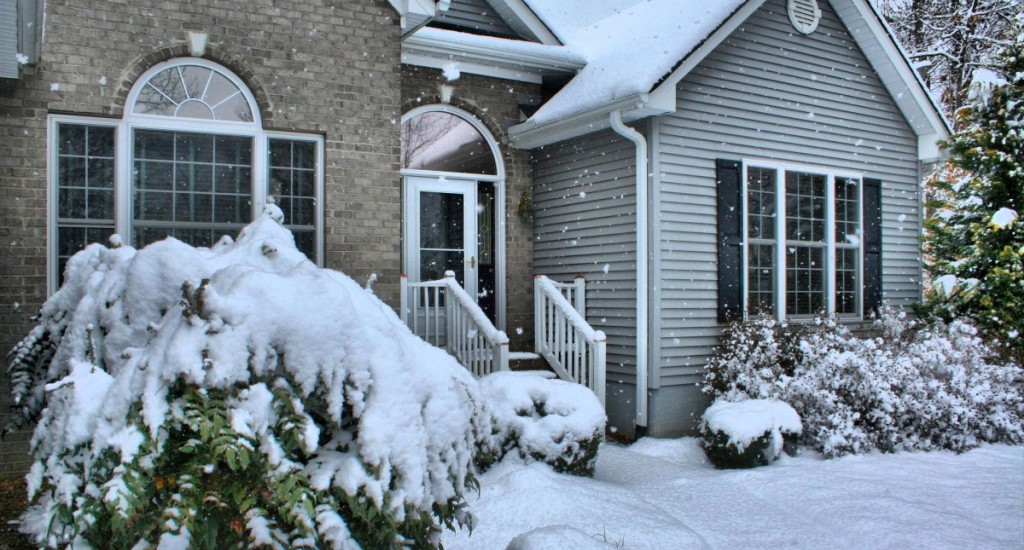Technically speaking, there are two possible solutions. The main thing that makes glass soundproof is its structure of glass, which we’ll discuss some time later. The impact that different soundproof glass windows can have is the reduction in certain frequencies.
Sound can be complex. It is possible to hear an array of frequencies; however, we’re focused on certain frequencies to which we’re regularly exposed. Soundproof glass, as well as the majority of building materials, is given An STC (sound transmission class)
Rating is a numerical measurement of a partition’s capacity to block out the sound. The standard single pane glass measures approximately 27. Dual pane glass can vary between 26 and 32 on average. To give you an example, at 25 or so it’s pretty easy to discern normal speech and normal sounds.
Soundproof glass is one of the most popular options. The different methods of construction produce an STC rating between 38-50. These can substantially reduce noise penetration. Different kinds of soundproof glass may have different characteristics that are largely dependent on the design and manufacturer.
While some windows may be specialized in reducing certain frequencies in office environments some windows are specifically designed to reduce the sound of a busy road. In contrast, the STC Rating is a reference to the ability of the window to cut down on the noise level overall.
Distinct Styles Of Soundproof Glass
It is the outcome of a variety of different methods, from insulation to special construction the goal is to reduce and capture the sound before they completely penetrate the partition. The same principle applies to the process of building soundproofing glass.
A thick soundproof glass window can describe exactly how it is. In order to increase the volume of sound that requires penetrating, the sound is diminished by a ratio.
- The air gaps create the air layer between panels of glass in order to reduce the sound.
- Acoustic or laminated glass. It is a variation of layering of glass and plastic construction.
Each style has its advantages Laminated and Acoustic glass have the highest effective alternatives with the most impressive STC ratings. Acoustic and laminate glass is identical in their construction and impact however; they differ in the resin that is employed between the layers of glass as well as the specific methods of construction.
Other Alternatives
If you’re trying to down on the sound level in your room or apartment, but without the cost and installation of new soundproof glass There are many options.
A lot of doors are equipped with air gaps that are between the door’s bottom and the jamb, or at the corners. One way to down on noise pollution is to weatherproof the door with foam or rubber that fills the gap but does not block the door.
Reduce Noise With The Appropriate Windows
Soundproofing is becoming increasingly crucial in modern-day buildings. Since a lot of people live in urban areas or close to traffic-spur roads, it is crucial to ensure that you expose the least amount of noise feasible.
In other cases, it can lead to anxiety and health problems. Each person’s perception of noise is different based on the sounds they encounter all day.
However, many people are susceptible to stress-related noise. Stress-related responses in sleep may result from an unending noise level that can reach upwards of 60 decibels. A person’s health could be affected by prolonged exposure to levels of 80 dB or more.
Human Noise Perception
Everyone is different in their perception of noise. One thing is certain: a constant noise at 60 decibels and upwards can trigger stress reactions in sleep. Once you reach the 80-decibel mark, health can start to decline. Here are some examples that illustrate the impact of sound at a distance as high as 10 meters.
Soundproof Windows Reduce The Sound At The Front Door
Soundproof glass windows are among the areas of a building that are the most vulnerable to noise pollution from outside. They are also important in areas that are located in the city center or in close proximity to railway lines, airports, or major roads.
They allow you to have a pleasant urban space and excellent transport connectivity with a quiet and comfortable sound within your home or apartment even in these kinds of areas. The exclusive technology allows the reduction of noise from 63 to as high as decibels in the event that the window is.
When the position is tilted, however, the soundproofing will take in up to 34 dB. This can result in a significant reduction in outdoor noises with natural air circulation.
The Things You Need To Be Educated About Soundproof Windows
Windows that are soundproof can prove to be a saving grace in areas that are surrounded by lots of noise, like in apartments over bars, restaurants, or nightclubs, close to construction sites, close to highways and freeways, and on major streets.
Soundproof window installation services can allow those who are renting or homeowners to rest comfortably in the evening.
What Are Soundproof Windows?
Windows that are soundproof will block 90% of the outside sound from entering your home. They block various sounds according to their frequency.
The high-frequency sounds, like car alarms, police sirens, and police sirens are more difficult to block than low-frequency ones like the rumbling of trains.
Are Windows Really Soundproof?
A residential window cannot stop all sounds every time. “Soundproof,” phrase “soundproof” is an abbreviation of noise reduction windows that reduce between 90 and 95 percent of the sound that enters your home via windows.
When choosing windows, you must decide on the frequencies of sound you’re looking to shield yourself from. The Acoustics industry has made searching for soundproof windows easier by measuring the soundproofing capabilities of windows with a scale known as the sound transmission class (STC).
A higher number indicates how the windows have more ability to block the sound. Traditional single-pane windows come with average STC ratings of 26.
Dual pane windows come with a mean STC score of. However, windows that are soundproof come with an average STC score of 45 and some even have STC ratings in the mid-50s. These windows can cut down on up to 95 percent sound outside.
How does Soundproof Windows Work?
To block sound, it is necessary to create a barrier that separates the origin of noise and the part of your ear which perceives the sound. The homes do this by using walls, roofs, and windows that block sound waves from getting into the home.
To boost the window’s STC rating and improve their capacity to block the sound, window manufacturers must:
- Expand the distance between window frames (add an air gap)
- The glass should be thicker (add mass)
- Utilize laminated glass, which is composed of a sheet composed of plastic that is sandwiched between two pieces of glass that hinder the transmission of sound
The wood frames that makeup windows that are soundproof are also to stop vibrations from moving through the wood, and eventually into the structure since they’re in the grain of the frame.
Soundproofing Your Windows And Home’s Resale Value
If you reside in an area that is noisy and want to make your windows soundproof, they can improve the resale value of your property.
Particularly, if the house is situated in a location that is noisy, such as an area that is a well-known part of the city, with plenty of eateries, these soundproof glass windows can help you benefit from your neighborhood, without suffering the negative consequences of the sound.
Other Strategies To Limit The Noise In Your Home
Installing soundproofing windows in your home will enhance your overall health and the quality of your life. It will raise the house’s market value.
Be aware, prior to purchasing costly windows, seek out a window expert and an acoustics expert to receive suggestions on how to lower the sound level within your home.


